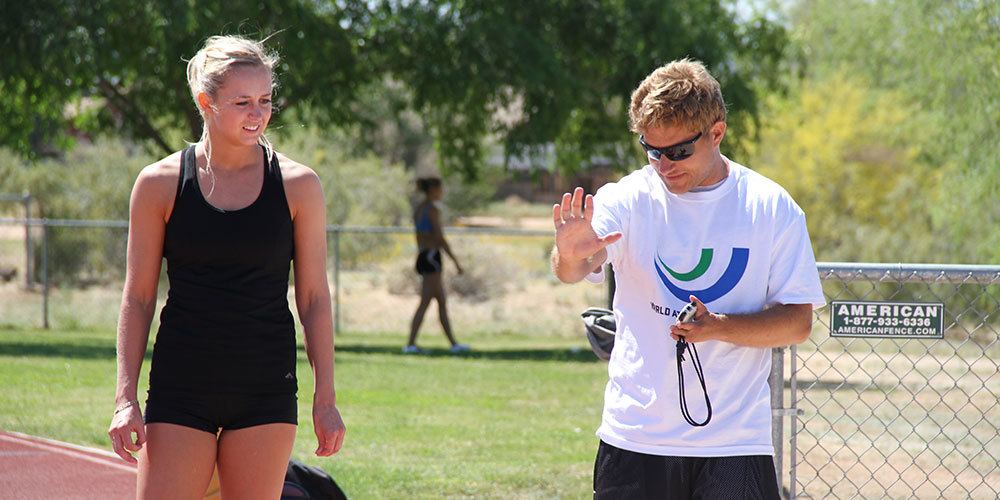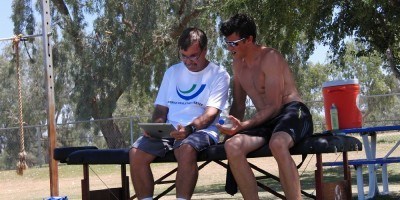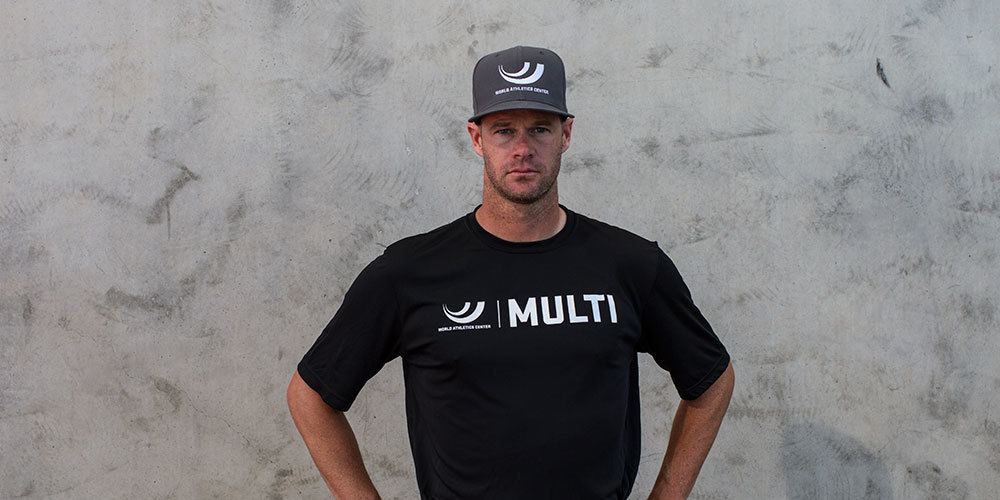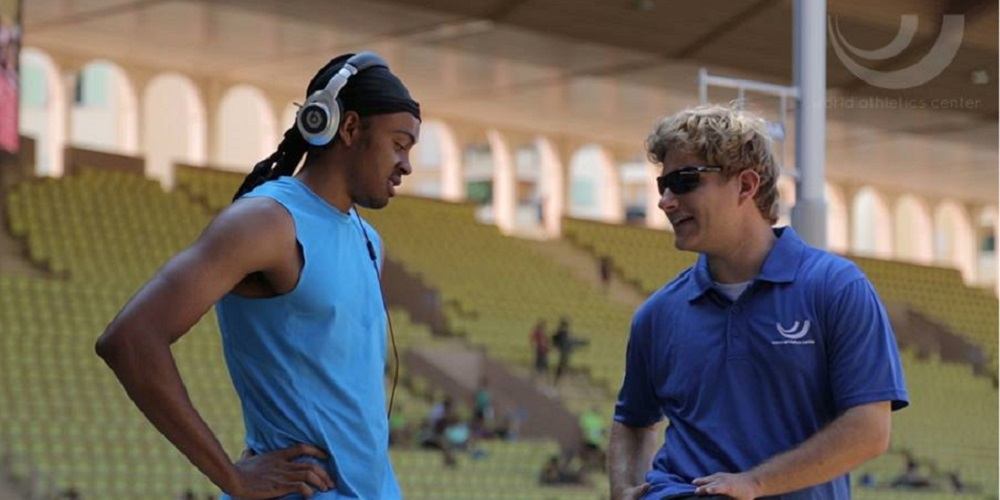In Kyle Hierholzer’s previous blog-post, Altis Combined Events & Jumps Coach discussed daily debrief strategies and methods for creating an environment conducive to stimulating open communication. In this follow up post, Kyle takes a deeper look into the art of the debrief, and discusses methods used at Altis pertaining to Post-Competition and Post-Season debriefs.
The Post-Competition debrief
Historically, debriefs originated in the military to discuss what happened on the battlefield or on a specific mission. What went wrong? What went right? What can we do better next time? What happened that we weren’t prepared for, etc. We view our post-competition debrief as very similar to this strategy. We are looking to gather as much information as we can about what happened prior to, during, and after the competition that we can use to then prepare for the next competition. It is our opinion that one of the end results of the debrief process is athlete accountability; they have to look back and take an honest perspective of what happened, report it to the coach, and move forward in the process with a renewed passion for honing their craft. Ultimately, this accountability leads to an increased sense of Mindfulness.
“One of the end results of the debrief process is athlete accountability”
Kyle Hierholzer
The Post-Comp Debrief Form has the four sections that we ask the athletes to complete and return/email to us. It’s best to do this while the feelings and details of the comp are still fresh in the athletes mind:
1. What did you want to achieve?
a. What was your competition strategy (from both coach and athlete)
b. What was your mindset going in to the meet
2. What actually happened?
a. What were the details of what happened in the competition
b. Where would you grade the execution of your strategy (poor to good)
c. Where would you grade your mindset (poor to good)
d. Was there a gap between what you wanted to achieve and what actually happened?
3. What caused the gap?
a. How were competition tactics?
b. How was technique?
c. How was mindset?
d. How was nutrition?
e. How was overall health?
f. What other stressors?
4. What did you learn?
a. What did you do well?
b. What do you need to keep doing?
c. What needs to improve?
d. What did you learn that you would not have learnt if you had not done the competition?
We don’t guide our athletes to feel like they have to answer every question listed above, but we do let them know that the more accurate information we can get, the more we can move forward with conversations, training adjustments, outside help, etc. As you move through a season these debriefs can help to identify Key Performance Indicators (common denominators), and give clues as to which KPIs have stabilized enough in training to hold up in competition settings – thus allowing you to start chipping away at the next performance virus.
Post Season debrief
Have you ever traveled home with an athlete from a major competition that didn’t go so well?
Somewhere on the trip did all of a sudden the floodgates open up and the athlete begin to drop bomb after bomb of all the things going wrong in training or life? The goal of the Post-Season debrief is to prevent things from ever getting to that point. As Coach Pfaff calls it “Unpacking Suitcases.” At Altis we have a very holistic approach to training, and athlete well-being is at the top of that list. Some of our best conversations of the year have come through Post-Season debrief reviews!

So, as we prepare for the start of a new season, we send the athletes a Post-Season debrief form. Generally, this is sent out about a month prior to the start of training, and gives the athlete an opportunity to put some thought into the entire training year as a whole. Everything is fair game here, and we encourage athletes to not hold back. We don’t want there to be any elephants in the room! The post season debrief questions that we have found to be successful are listed below:
Altis season debrief worksheet
– List 3 KPI’s that were your key objectives this season.
– Were these KPI’s improved upon? If not, reasons for failure to achieve?
– List top 3 performances.
– List season average.
– List 3 favorite strength training items and why.
– List 3 least favorite strength training items and why.
– List 3 mental resilience factors you targeted this year.
– Were these items improved upon? If not, what were the reasons for failure to evolve?
– List 3 menu items in training that you enjoyed & looked forward to training each cycle.
– List 3 menu items in training that you didn’t enjoy / saw no relevance to your needs.
– List 3 menu items about the staff that you found to be a major aid in performance.
– List 3 consistent injury factors that inhibited performance this year.
– List 3 items about the staff you found to be irritants or factors faulty in performances.
– List 3 things you would change at Altis if were on staff or CEO.
These are the primary questions addressed on the debrief form, but these are followed with a semantic differential scale where we ask the athletes to rate themselves on a scale of 1-5 on various topics including; sleep hygiene, nutrition, lifestyle, running mechanics, event technique proficiencies, readiness at different times of the year, understanding of event specifics, financial stress, and video usage.
As you can see, these questions are fairly thorough and complete in regards to the information received, but it is my opinion that they also serve to provide one other key purpose: they provide the athlete ownership and involvement in their process! They have a venue to safely communicate what they liked and didn’t like about just about every component of the season.

They can open doors to conversations that they may be wanting to have, but are hesitant to bring up! We have found that athletes who know that their input is highly valued in the process, are often times highly bought in to the process. It also holds us as coaches accountable, because we are reminded that we too are graded every day on our performance. It’s my belief that the daily, post-comp, and post-season debriefs create a sense of balance in our system – where all parties are held accountable to each other, where by the end result is an increase of peace in the process, and ultimately performance of the athlete when it matters the most.
Thank you for taking part in this discussion with us! We invite you to become part of our growing network here at Altis, and if you use these debrief strategies, please communicate to us what you find! What worked in your setting? What didn’t work? What part of it did you tweak?
Thank you again, and best wishes in your training this season!
Kylie Hierholzer


